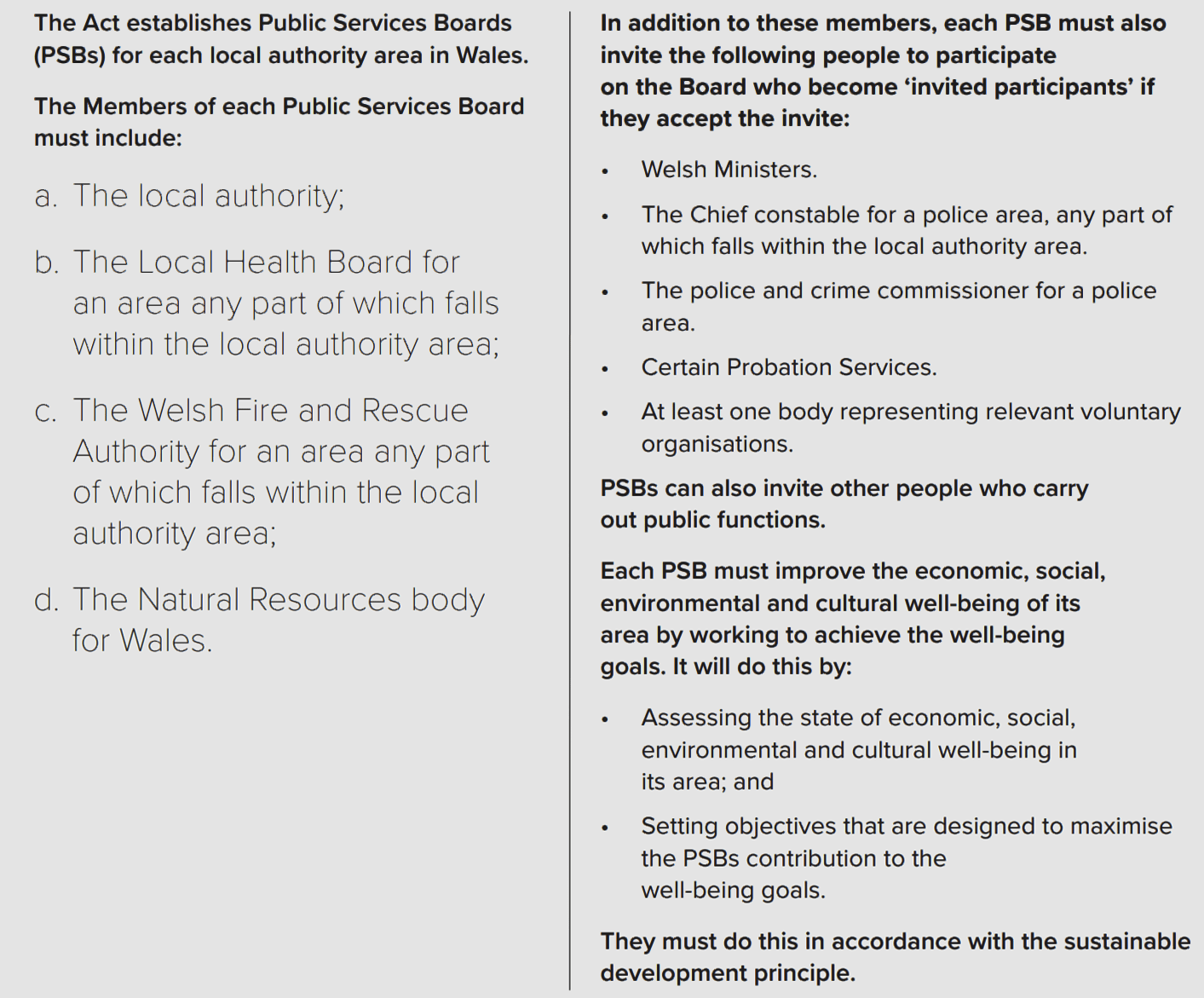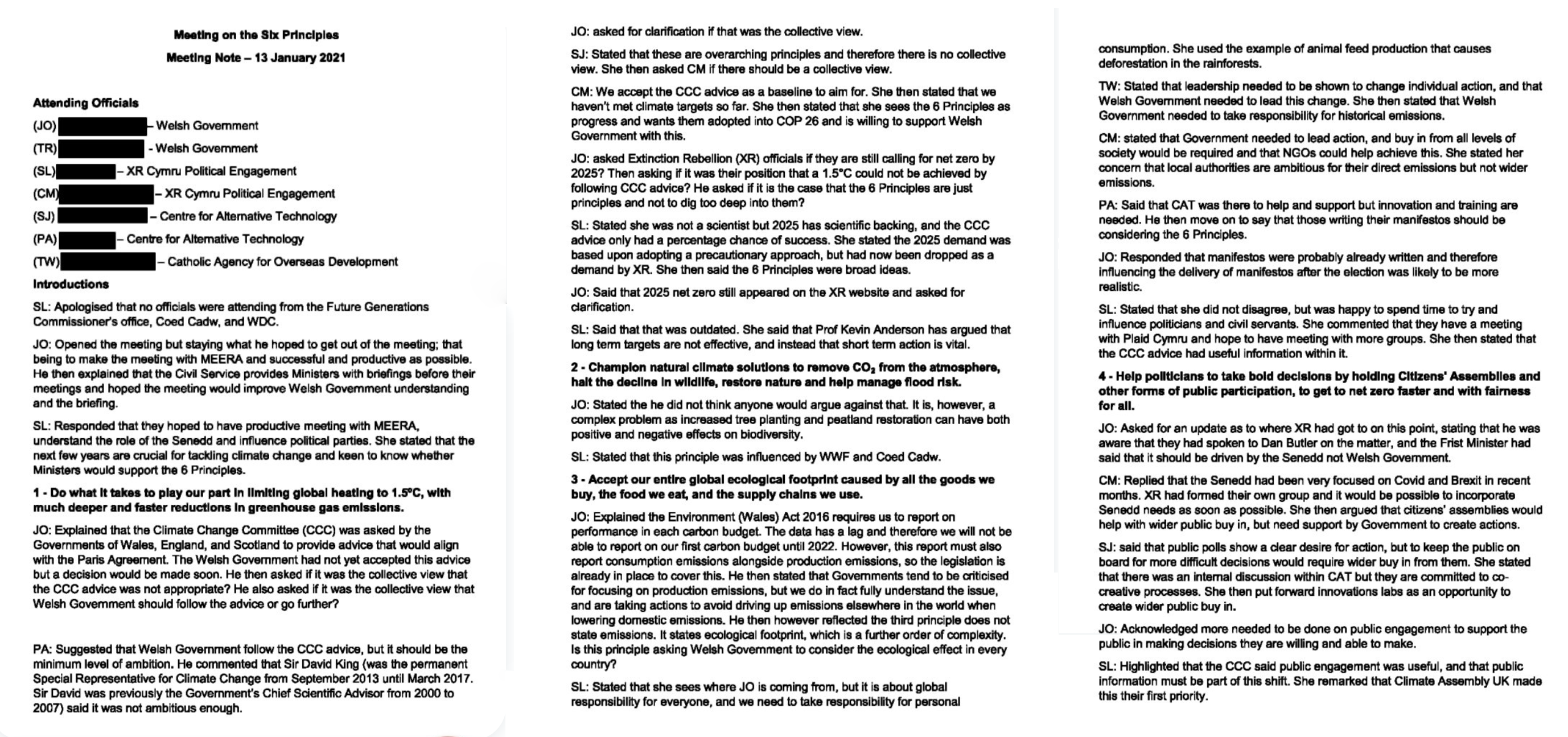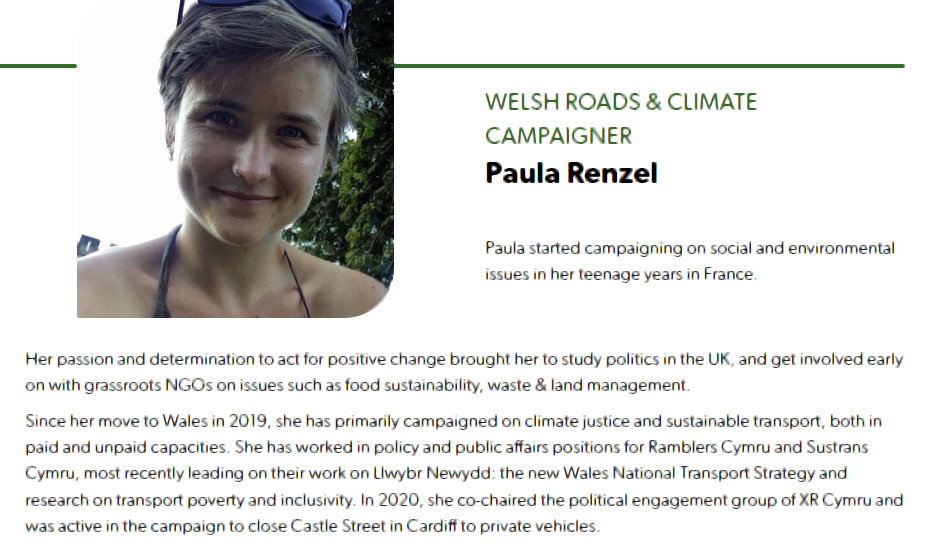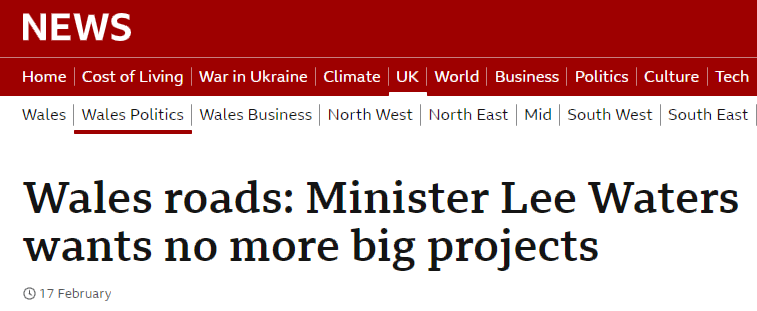![]() In a sense, this is a follow-up to last week’s offering, Budget Boost For Rewilders And Globalists. This week, I’m looking at an example of ‘rewilding’ which, on closer inspection, turns out to be a tourism business – receiving funding for posing as a rewilding project.
In a sense, this is a follow-up to last week’s offering, Budget Boost For Rewilders And Globalists. This week, I’m looking at an example of ‘rewilding’ which, on closer inspection, turns out to be a tourism business – receiving funding for posing as a rewilding project.
I’ll fit this into a more general evaluation of ‘rewilding’, and what it really means.
Incidentally, last week’s piece about Tir Natur’s project got a response from ‘Welsh Government’-funded Nation.Cymru and Stephen Price, its Senior Reporter.
Price has a background “working in the third and charity sectors“, and a “voluntary role as a Keep Wales Tidy Litter Champion“. Which gives us another link between that charity and Tir Natur.
◊
SETTING THE SCENE
This week, we’re mid-way between Abergavenny and Monmouth, the region I’ve dubbed ‘Abergavennyshire’ due to an influx of ‘progressives’ from the hell-holes of ‘Metro-Land’ and elsewhere.
(It should go without saying that Stephen Price lives in Abergavennyshire.)
Despite its distance from Corruption Bay, our politicians care more for these recent arrivals than for Welsh people. Certainly, that’s my conclusion when I consider the funding and other patronage bestowed on Abergavennyshire.
Perhaps a reward for this ingress strengthening Labour’s position as the largest party on Monmouthshire county council.
It’s here we find the Abergavenny Food Festival, Coleg Soros, Brecon Jazz Festival, Hay Festival, the many bodies arguing farmers are killing the Wye and the Usk. And of course – Gilestone farm, and the Green Man Festival. Etc., etc.

Our destination today is not easy to reach. There’s no A road in the vicinity. Instead, it’s the B4233, then a track off that road, and after you’ve gone up a-ways, it’s another track to the destination.
This off-road excursion brings us to the The Grange Project. Run by Tom Constable and his wife Chloe, who bought the farm in April last year for £1.875m, without need of a loan or a mortgage.
But as the entry on Rewilding Britain tells us, there’s a lot more going on:
The vision for the site includes developing new nature-based tourism, including log cabins, alongside education and wellbeing programmes hosted in a beautiful converted barn on site. Chloe intends to use her background in clinical psychology to run courses focusing on the systemic resilience required to address the climate and biodiversity crises, while Tom will use his background in business to support ecopreneurs as they set-up and thrive on site.
Those who’ve been brainwashed, worked into a frenzy over a non-existent ‘climate crisis’, will be able to come to The Grange for treatment. At a cost, of course.
The Grange Project also does podcasts – in fact, Tom Constable is a professional – and here we find another link with last week’s piece.
You may remember Dan Ward, one of those involved with Tir Natur, was also working with North Star Transition. North Star was created by Jyoti Banerjee, who starred on the Grange podcast last week.
Small world, innit!
◊
A CLOSER LOOK
Those who’ve given themselves nightmares from reading too much Monbiot won’t be the only visitors, for The Grange also offers corporate away days. Where the IT department of Global Gizmos Inc can come gaze at trees and stuff.
Better still . . . for the trifling sum of £10,000 you can enjoy “two bespoke corporate away days“. Read more in the Corporate Partnership Proposal.

I tell you what . . . for half that (in ready cash) you can have two corporate away days in my back garden, There’s flower beds, and a tree, and, er, grass, and if it’s wildlife you’re after then I’ll get our cat to put in an appearance.
If it’s raining you can sit in the conservatory. The missus will lay on a cuppa and biccies. Can’t say fairer than that, squire.
I have no doubt that the companies turning up for these eco-jollies will be claiming tax deductions, which will contribute to the ‘black hole’ in the UK accounts, and be used to justify freezing pensioners this winter.
That’s the ‘circular economy’ you keep hearing about.

And sure enough, in the Corporate Partnership Proposal we find predictable ‘quotations’.
One from the World Wide Fund for Nature (WWF), that outfit launched by Nazis using environmentalism as the new way to seize power and cull the untermensch.
The other is attributed to ‘Native American Wisdom’. (Are people still falling for that bollocks!) Here’s some wisdom from a source as much Native American as the one quoted: ‘Big Chief Jac-on-Blog say: “Environmentalists speak with forked tongue“‘.
The Grange website also offers, “our own glamping cabins and bespoke bell tents“, and elsewhere, “off grid escapes” in caravan-type structures made by Herefordshire chippie Simon Whitfield.

Whitfield runs The Tiny Home Company. When I tried to find it on the Companies House website I drew a blank. So I went back to the website and scrolled down the homepage, where, in the smallest font imaginable, was: “The Tiny Home Company is a trading name of WB Capital Ventures Limited“.
But it was only by copying and posting it into Word that I was able to read that. Why so small? Very odd.

WB Capital Ventures Ltd was formed as recently as July, and I assume ‘WB’ stands for Whitfield Brothers, because the two directors are Simon Peter Whitfield and his older brother(?) John Robert Whitfield.
The twelve shares split 8 – 4 in favour of the older brother. Who maybe put up the cash. He has over a million pounds sitting in the bank account of his other company.
And talking of money . . .
In its short life The Grange Project has already trousered £26,650 from the Coetiroedd Bach scheme. I guarantee there’ll be more grants in future.

I’ll end this section with a brief look at what’s registered with Companies House. There are two companies.
One’s Wild Grange Farm Ltd, launched as recently as September 5, with the Constables as the only directors and shareholders.
And then there’s the Community Interest Company, formed in August, Wild Grange CIC. Again, Tom and Chloe Constable are the only directors (or members) and shareholders. Which I found odd. Because with a CIC I would expect to see others named, representing the community that will benefit.
This is usually people in the vicinity. So I went to the Companies House website entry for Wild Grange CIC and the Certificate of Incorporation. Most of which is pro forma.
Though towards the end it sets out who might benefit from the CIC:
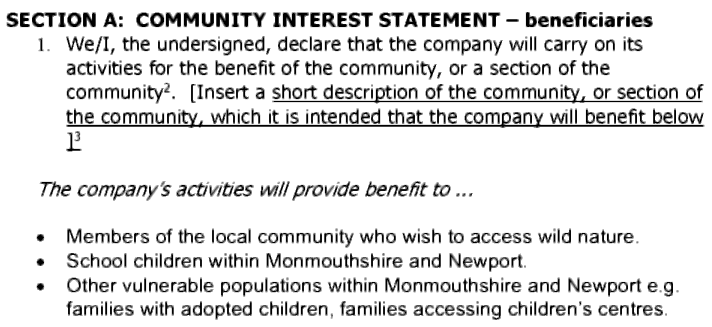
Which is fair enough, and what I expected. But what I read earlier in the document has me thinking. I refer to Rewilding Britain, as the ‘asset locked body‘.
A worst case scenario might be . . . the farm title is transferred to the CIC, which liquidates, and Rewilding Britain takes over The Grange.
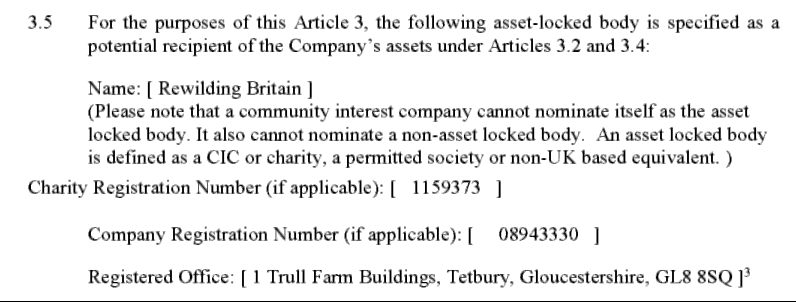
In the clip above, the Charity number given is that for Rewilding Britain. Whereas the address is for The Trust Partnership (and associated companies), which I assume drew up the arrangement.
The mystery is company number 08943330. For it refers to Mental Mastery Ltd, of Bournemouth, that dissolved 18 months after being formed, without filing anything.
I’ll assume it’s a typo. But if not . . .
◊
THOUGHTS ON REWILDNG
Let me be clear, there might be a role for small-scale rewilding such as we’re asked to see at The Grange.
Thinking again of my back garden . . . if I let it run wild it would sprout plants, flowers; attract butterflies and other insects, some small mammals, maybe a foraging hedgehog.
But once we talk about pine marten, beaver, wild boar, deer, wild ponies, ancient cattle, then we need more land than even the 1,000 acres Tir Natur is hoping to buy.
Because without large areas for these animals to roam and live naturally, problems such as stress, over-grazing, and in-breeding will occur.
Of course, food can be brought in, and fresh bloodlines can be introduced; but if ‘rewilding’ doesn’t create a self-perpetuating ecosystem, as in nature, then that defeats the whole object of the exercise.
One answer might be linking separated projects with ‘corridors’. I mention this because the idea features regularly in rewilding fantasies. Such as one in Cornwall called Tor to Shore. (Does that ring a bell?)
While Helman Tor sits near the top of the Par River, areas downstream are surrounded by farmland, where the project will partner with local farmers to tackle agricultural pollution and create ‘wildlife corridors’ – areas of habitat that . . . connect with other nature-rich sites, allowing wildlife to thrive beyond the reserve’s boundaries.
Rewilding Britain got its ass kicked for its involvement in a similarly-named colonialist land grab. It may be treading more carefully now, yet it’s deeply involved at The Grange, and seems to have been involved from the outset.
But how well do animals understand ‘corridors’? Not well at all; so that would mean mile after mile of fencing . . . which will inevitably get broken.
Mrs Jones will wake one morning to find aurochs feasting on her prize geraniums. And, then, when she goes out to shoo them away, and one of the buggers tramples her . . .
Or maybe it’ll be the consolation prize of tauros.
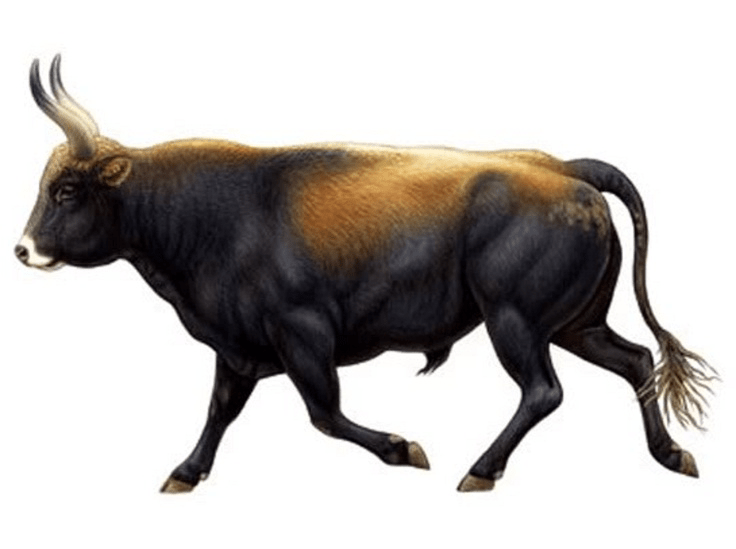
I haven’t mentioned predators like wild cat, lynx, and wolf. All of which appear in rewilders’ literature. Yet they have to be present, for without the balance created by their natural predators introduced prey animals will need to be regularly culled.
As deer are culled in the Highlands, due to the absence of wolves. While a shortage of prey animals will see predators going elsewhere to get a meal. (‘Look out, Mrs Jones!‘)
Which means that for a rewilding project to be viable it would need 20,000 or more self-contained acres. There would need to be enough food for a range of herbivores and foragers, whose numbers would be kept in check by predators – as in the wild.
In a small country like Wales we just don’t have that land to spare. Not if we; a) want a farming industry and b) let people access the countryside.
Which brings us to a very fundamental question, one confronting us at Grange Farm: ‘What is the real purpose of rewilding?’ This article (February 2023) asks a very similar question, and gives some disturbing answers.
A bit leftist for my tastes but it still makes good points about farms being lost, and corporate investment through middle men, agents, and front organisations.
Organisations such as Rewilding Britain, involved with three-year-old Nattergal. Below is Nattergal director and CEO Archie Struthers, panellist at Rewilding Britain’s Blue Earth Summit last month.
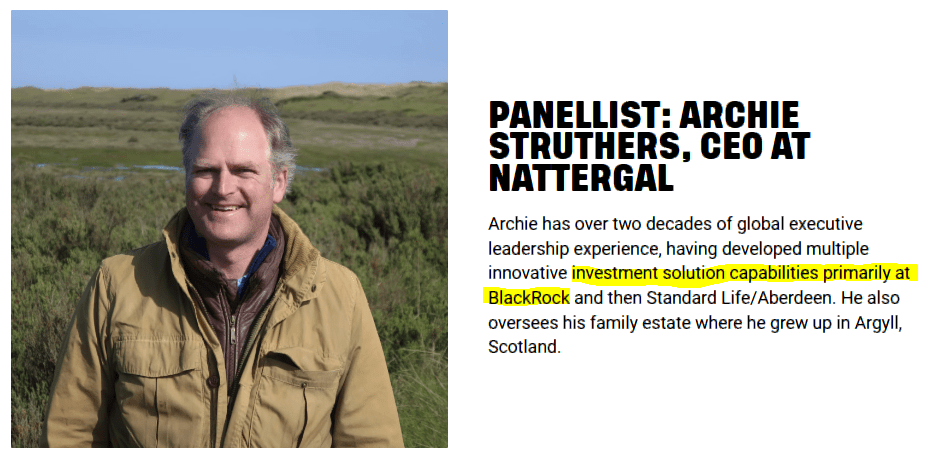
Nattergal is owned by Lansdowne Developed Markets Master Fund Limited of the Cayman Islands.
One day Archie’s a ruthless investments guru, next day he’s saving the planet. These things happen. After Christmas I’m joining the Socialist Workers Party. (Yes, really!)
Archie’s a busy man for Nattergal, and the company’s mystery owner. Let’s look at three recent ventures. Starting with High Fen Wildland, where we read:
High Fen will offer wellness, eco-tourism, educational and research opportunities to provide opportunities for people as well as wildlife.
Wildlife comes last. Almost an afterthought.
The other two are Boothby Wildland, where, “Nattergal hopes to generate revenues through the sale of ecosystem services (natural capital)“. And Harold’s Park Wildland, that “will generate income from the sale of Biodiversity Net Gain (BNG) units and corporate sponsorship, and will support nature based tourism and recreation“.
Archie also has a couple of relatively new companies of his own, registered in Glasgow. Ardmaddy Ventures Ltd, named for his Argyll estate; and Nature Based Investment Solutions Ltd.
Make no mistake, corporate ‘investors’ are circling Welsh family farms like vultures.
There was an example just last week of farmers being ‘cold called’ by a company named Property Vision. Acting on behalf of anonymous ‘investors’.

Rewilding Britain is involved with three projects in Wales in addition to The Grange; they are:
Cefn Garthenor, in Ceredigion. Gilfach, in Powys. Wilder Pentwyn, also in Powys.
They have three things in common:
1/ They were once homes to Welsh families.
2/ They are no longer working farms producing food.
3/ They have received substantial ‘Welsh Government ‘ funding
Always worth remembering when some clown gets all misty-eyed over ‘rewilding’.
◊
CONCLUSION
On a fundamental level, The Grange Project makes no environmental sense due to the increased traffic emissions as engines struggle with gradients and rough tracks to even reach the place.
More environmental damage than the working farm it replaced. Unless of course you want to be really stupid and introduce the threat posed to us all by farting cows. (Fortunately, ‘Dr’ Bill Gates has a solution.)
The Grange Project is clearly a tourism project and a ‘wellness’ retreat for hysterical Guardian readers raking in extra money by presenting itself as a rewilding project. Like those we looked at earlier linked with Archie Struthers.
I believe genuine rewilding is incompatible with daily visits from the public, especially noisy children, and middle management on a raucous day out. Making it all rather phoney.
Especially if there’s ‘natural capital’ and ‘biodiversity net gain’ involved.
And let’s remember that The Grange is less than 100 acres in total. From what I can see, a few trees have been planted and pigs allowed to muddy up some fields. Is that really ‘rewilding’?
If so, then why aren’t we all offered money to let our gardens run wild? A few thousand of us, in Wales alone, could make a big contribution to the environment and biodiversity.
Because, gentle reader, ‘rewilding’, with the involvement of outfits like BlackRock, is not about saving the planet; it complements legislation and other measures intended to undermine farming, thereby freeing up land for acquisition and investment.
‘Rewilding’ is just the prettied-up face of the Globalist land grab.
Once you understand that – everything else makes sense!
♦ end ♦
© Royston Jones 2024






